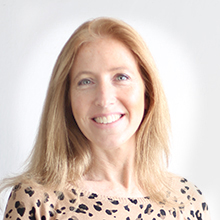We all know cookbooks. We know that, if we follow the recipe step by step, if we have all the ingredients and understand the minor subtleties so that we do not burn the plate or serve raw food, then we will achieve a relatively satisfactory objective. However, we are also aware that the cookbook will not make us great chefs until we start experimenting, tasting flavors and taking risks.
Something similar happens in the world of Project Managers (PMs): those who are taking their first steps in a junior capacity usually stick to the method’s instructions. The method is a market standard, a good guide to know where to start, and a format for a common understanding with the rest of the team and stakeholders. Usually, it is not necessary to explain what a “daily” is, or the importance of creating a “demo”. Everybody understands it. However, if the objective is not being reached efficiently, we can review the audience, the frequency, the duration and the content of each ceremony. If the framework and common language did not exist, we would need to reinvent the wheel to start every new project, and that would take a lot of time.
From the surest way… to the most efficient one
If in doubt, the script seems to be the surest way. When the ground is muddy we have to tread carefully. But, as new projects are implemented, we will acquire the skills of a chef: we will season the food in the best way to generate the highest possible motivation, integration, autonomy and efficiency for the team and, consequently, the highest level of client satisfaction.
Each product, each client, each team… they may be different from one project to the next. Therefore, it is only logical that only one recipe will not allow us to attain success in all cases. Experience shapes PMs, it injects them with new realities, new roads, and new ways of solving problems. At the same time, the knowledge acquired is useful for the rest of the team. Retrospective practices allow PMs and collaborators to analyze what was done well and the areas that can be improved.
PMs who are willing to be guided by their own experience –and that of their leaders and of each member of the team– will discover the areas that can be improved and will turn those improvements into a continuous process. They will also realize that, very often, flexibility, active listening and innovation to find different roads turn out to be better than the method. Such flexibility must be conveyed to the rest of the team, to encourage all collaborators to experiment, to find their own flavors and to be the protagonists in the search for the best recipe possible.
The true factors of success
As they collect experience, PMs discover that the factors of true success do not depend on the method, but on other factors. For instance, the active listening of team members –finding the information necessary to generate improvements– and clients, makes it possible to create more value.
Additionally, we should not become enamored with our own ideas. Active listening will serve to broaden the scope. Another skill reinforced by experience is to put ourselves in the client’s shoes: experienced leaders know that any investment without a purpose, that does not help improve the client’s business, will fail, no matter how interesting or innovative it is.
The balance point
Is there a balance point between method and experience? At Making Sense, we are developing the concept of MS Way: a set of practices from all areas generated by a combination of methodology and knowledge we have acquired in the field over the years; that is, they have already been tested and can be reused in a more efficient manner. They remain as a basis for support, and will continue to be adjusted by each team according to the context, and enriched with new experiences.
PMs play a fundamental role as a link among all the parties of the project, and work together with the leaders of every area. Very often, PMs are the face the client sees, and they must know when to make room for others to face the client to add value with their own skills and knowledge.
What personal view can you share with us about the profile of a PM?
The profile of PMs has changed, particularly over the last decade, and not only because of their own experience, but because the industry, the market, professional profiles and leadership have evolved considerably. Early in my career or during my training as a leader, these things were greatly valued: knowing more than the rest of the team members, having all the information necessary to answer any question from the client or the team, and being rigorous about methods, documentation and times. Complying with agreements set in stone was the main focus for the PM.
Over the last years, leadership styles have shifted towards soft or human skills, where value is assigned to facilitating rather than controlling, and to discussing rather than giving information. Ideally, we must bring out the best in ourselves and in every member of the team. We must help people find their motivation, generate innovative ideas and find spaces to share them and test them, bringing about a collective, common intelligence. And, above all, the capacity to generate strong relationships with the members of the team and with the client, creating a bond of trust where information and analysis can be shared openly to find high-value solutions for all parties.
